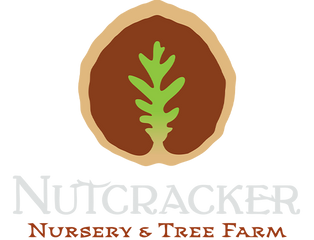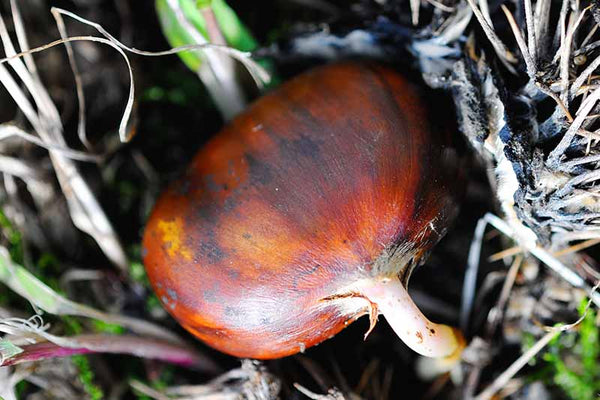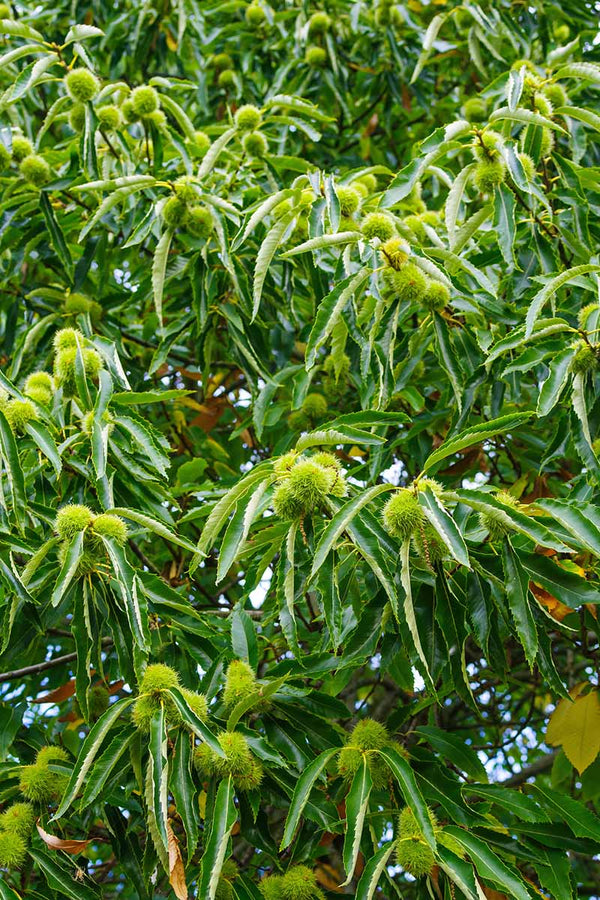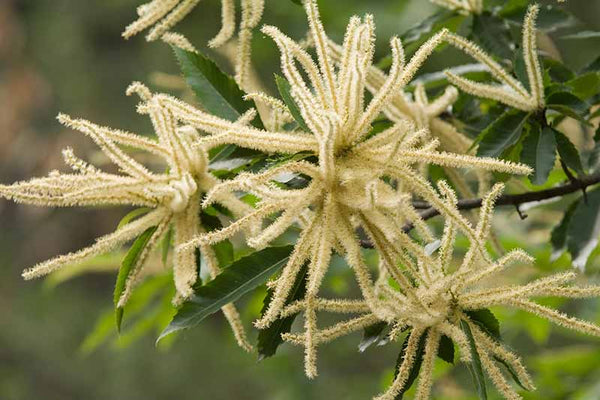Hybrid chestnut 'Labor day'
Shipping calculated at checkout
37 in stock
Need more? Contact us
'Labor Day' is a tree selected from the late Norman Higgins' orchard in Perry, Michigan. The mother tree is approximately 50 years old and has several vertically growing trunks. It is reported to be Korean or to have some Korean genetics (probably Japanese, C. crenata). It is a prolific pollen producer that sheds pollen early and for three weeks, which should help pollinate early flowering European/Japanese cultivars like Colossal, Bouche de Betizac and Precoce Migoule.
It is a good producer of nuts. The most beneficial characteristics of Labor Day are its abundant and early pollen, synchronized with Colossal, and the fact that it produces mature nuts during the second and third weeks of September. In southern Michigan, it will produce nuts the week of Labor Day (first Monday in September). In northern Michigan it will not produce nuts as early, but much earlier than Colossal. Early harvest is crucial in areas of northern Michigan where early frosts can damage nuts still attached to trees. For growers who do not need early production, this tree is a good producer of high quality nuts and the nuts are easy to store for early markets. This tree has been propagated and planted in experimental plots and on farms in the southern and northern parts of the Lower Peninsula of Michigan and has given good results.
Chinese chestnut trees with European x Japanese hybrid chestnut trees is a pollen incompatibility that causes the hybrid nuts to rot. While Chinese chestnuts are resistant to chestnut blight, European x Japanese hybrids are susceptible, creating a further disease-related issue.
- Cause: A pollen incompatibility reaction between the two types of trees triggers the nut decay. For example, the cultivar 'Colossal'—a European x Japanese hybrid—can have up to 40% of its nuts affected by IKB when pollinated by a Chinese chestnut.
- Symptoms: This condition causes the nut kernels to rot internally, making the nuts unmarketable.
- Solution: Growers are advised to plant either the European and Japanese hybrids together in an orchard or Chinese chestnuts in a separate orchard, but not to mix the two types in the same orchard
Hardiness Zones
Specific port
Growth speed
Flowering period
Number of years for production
8 years




